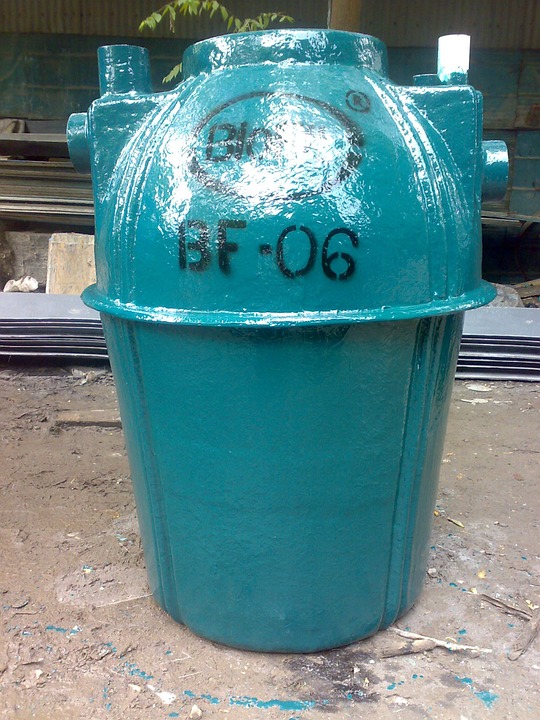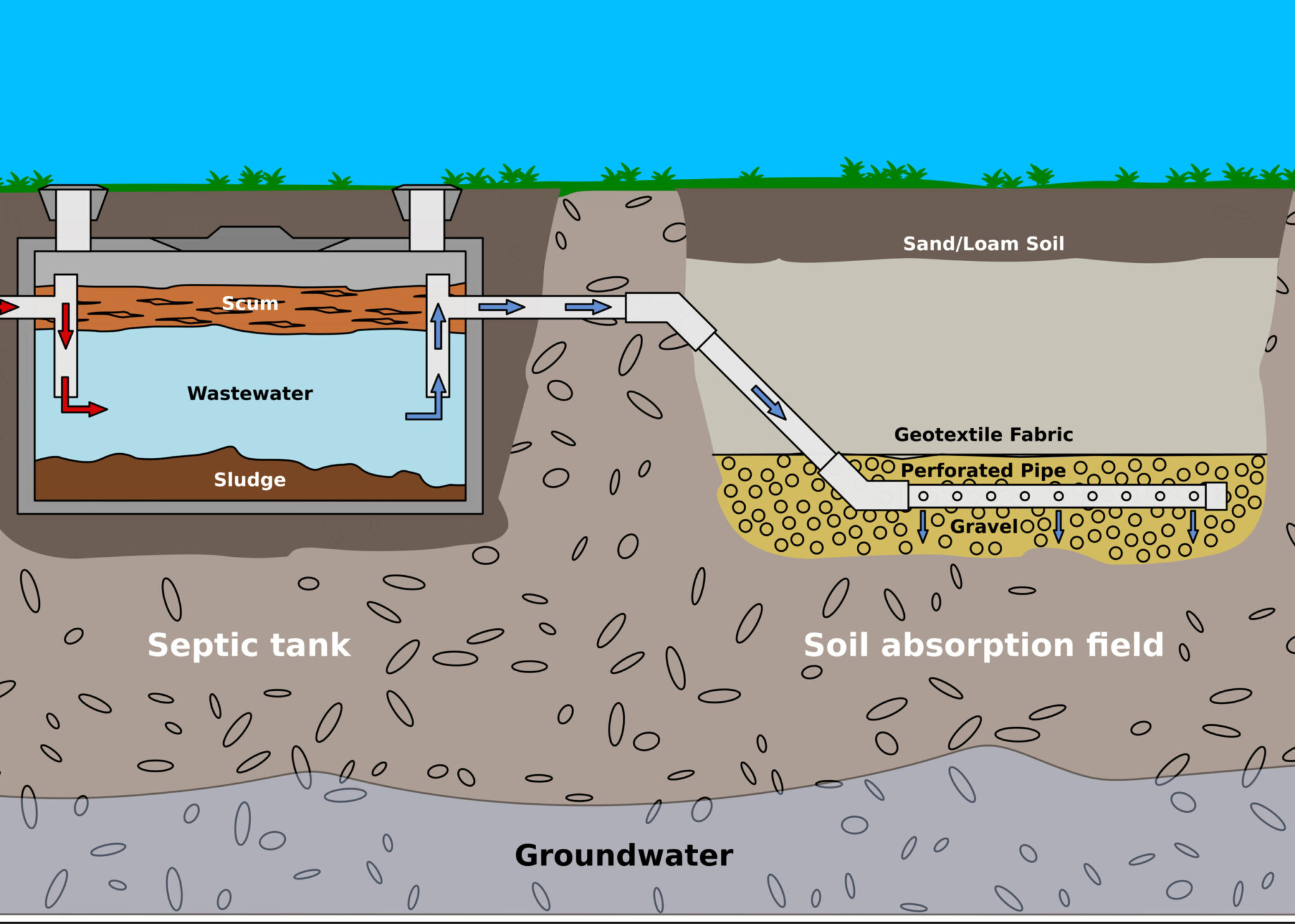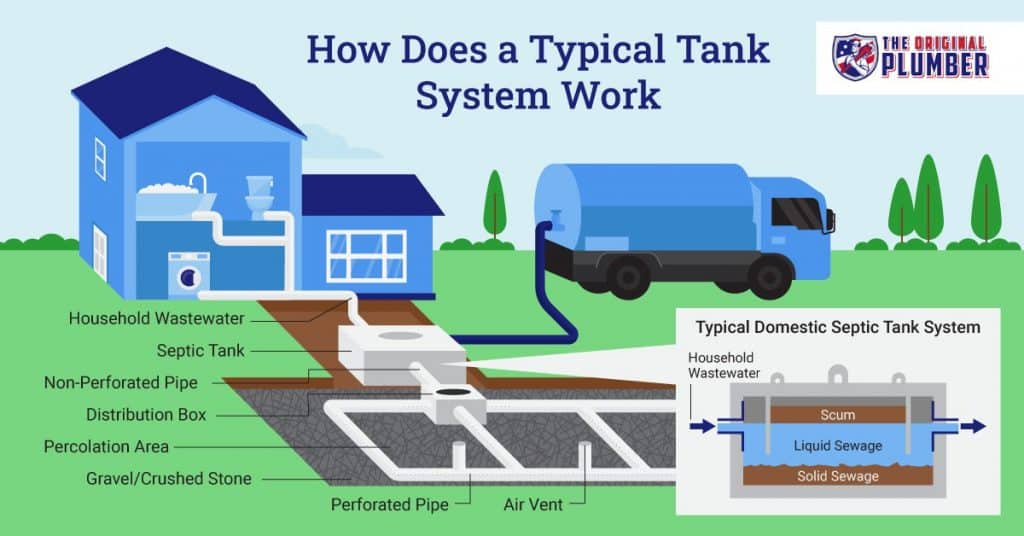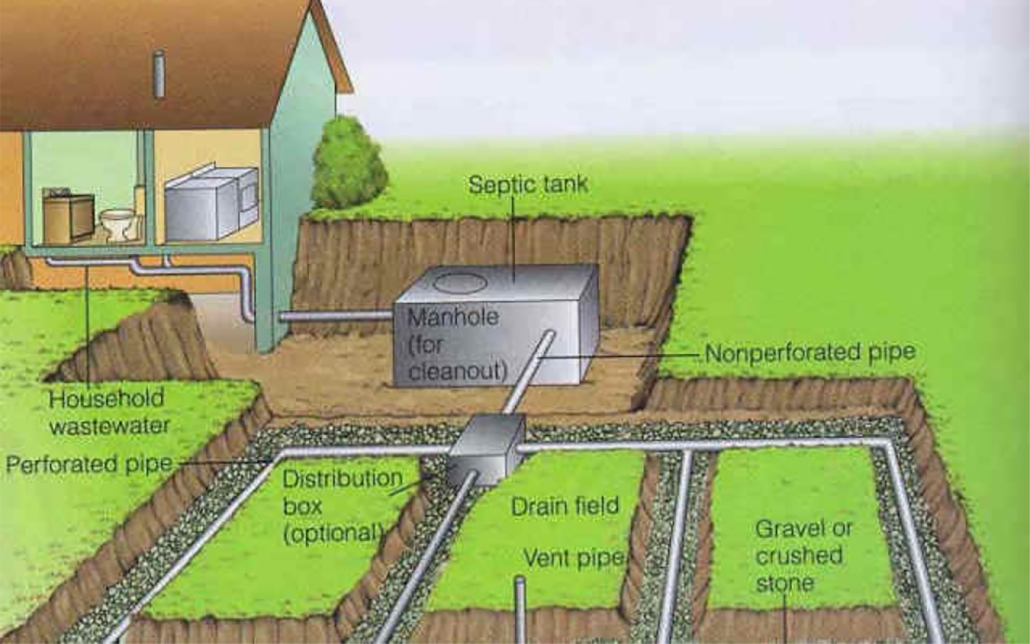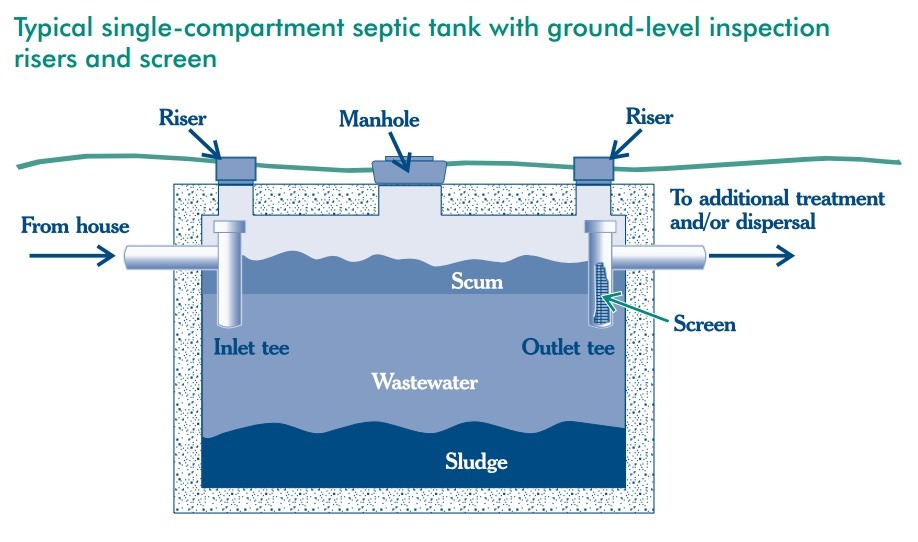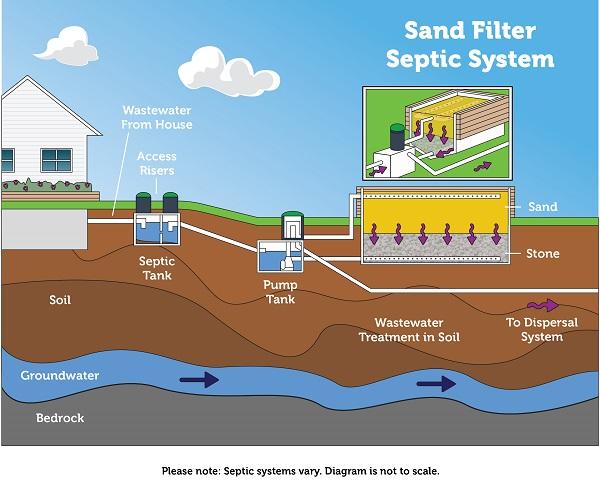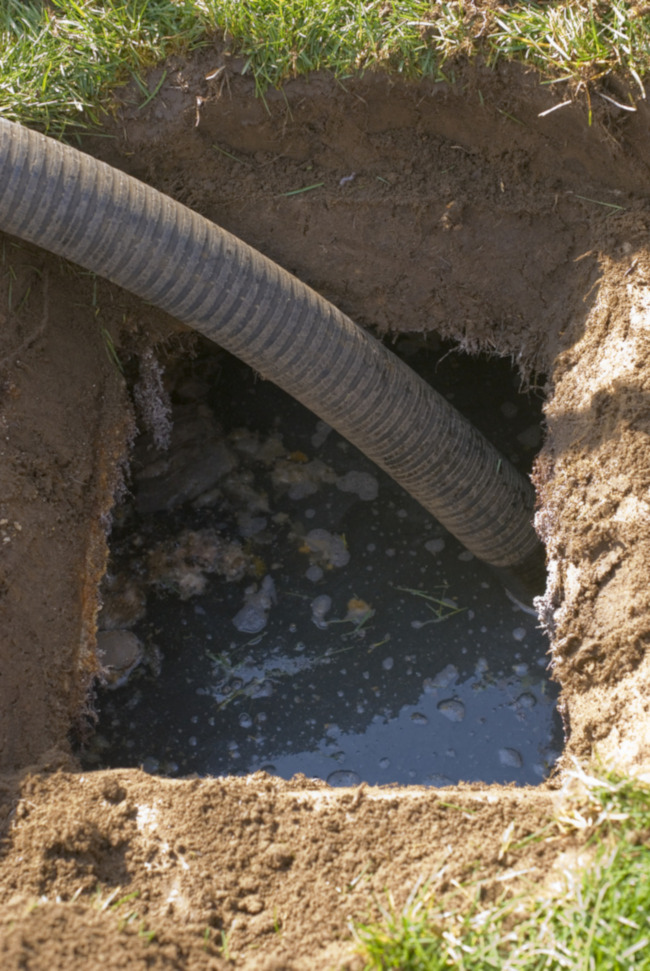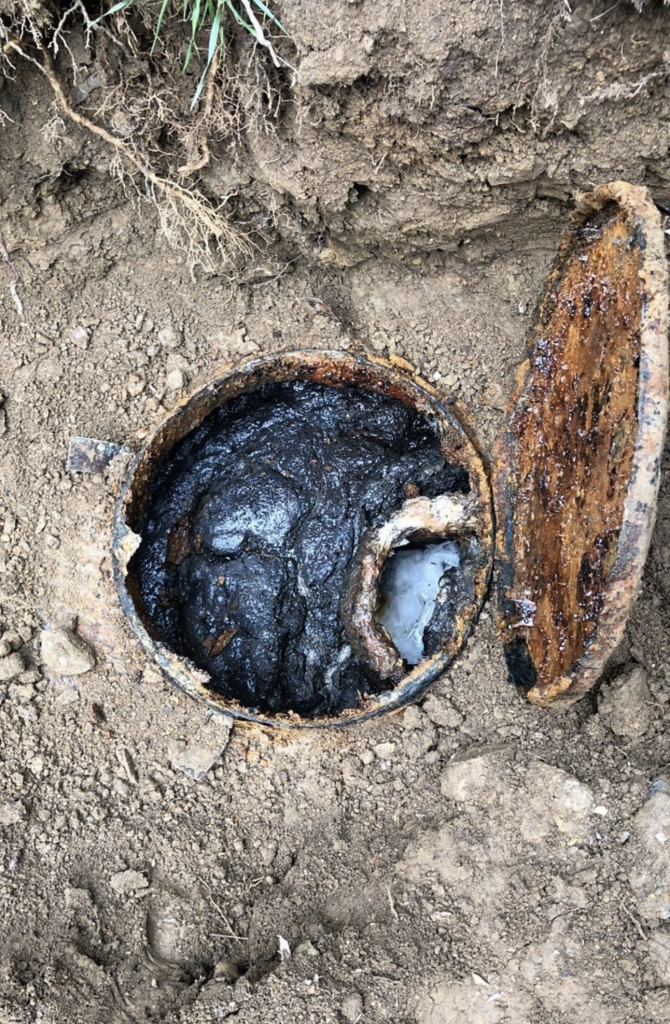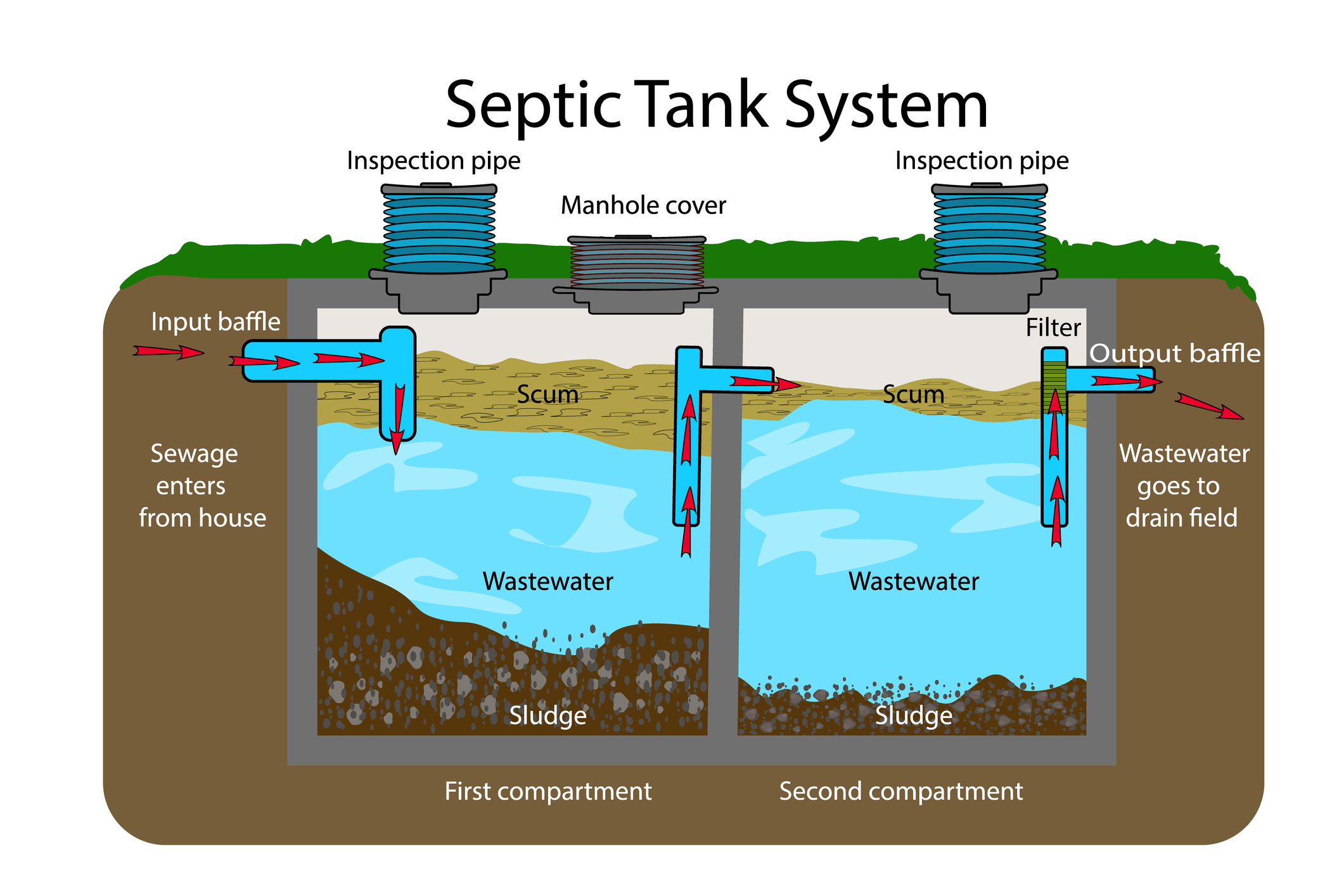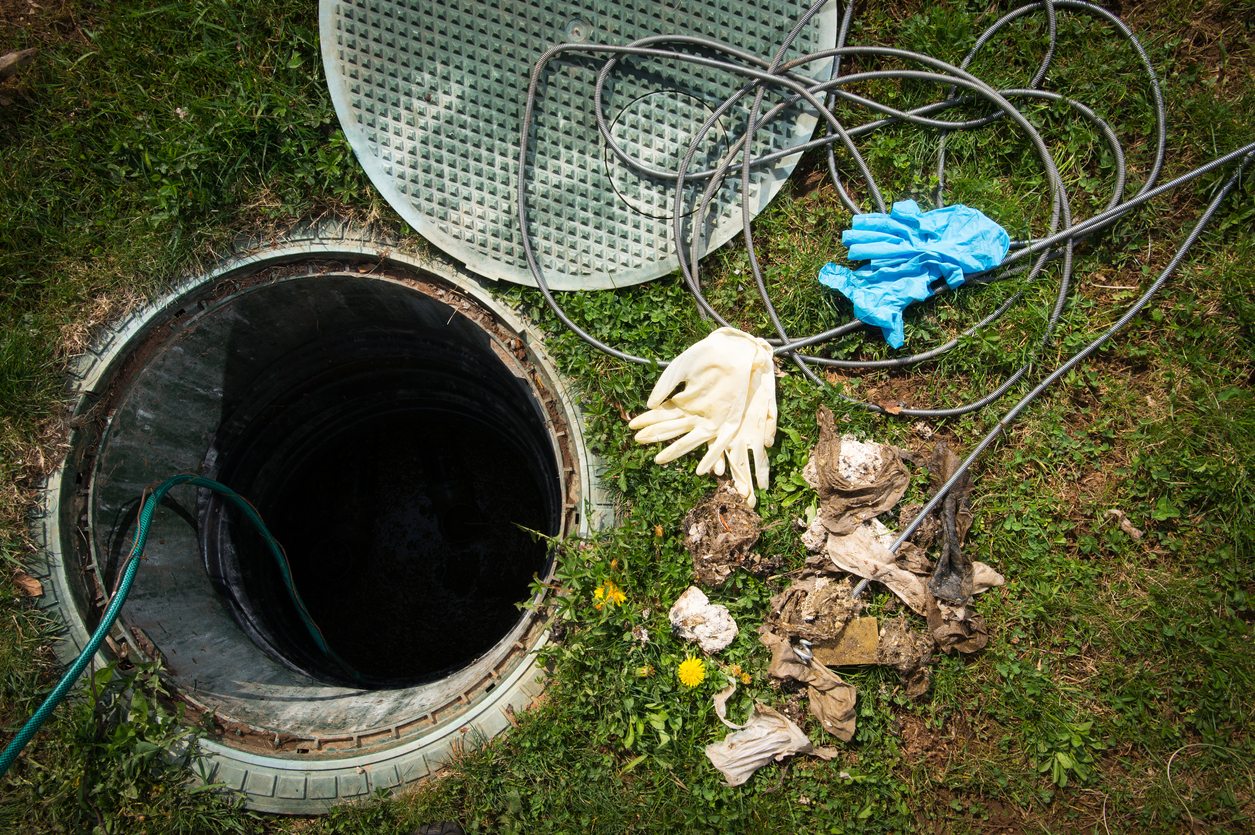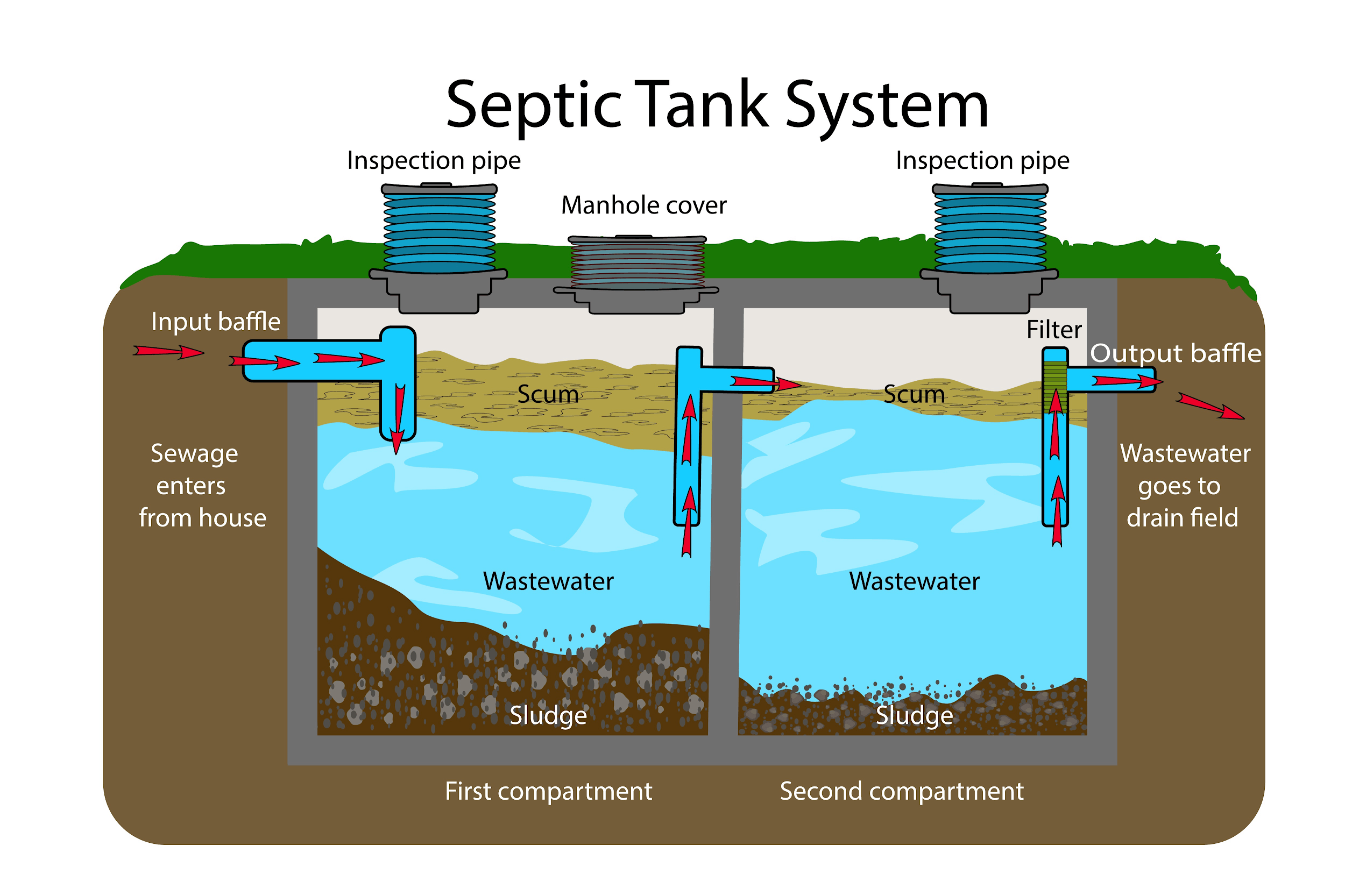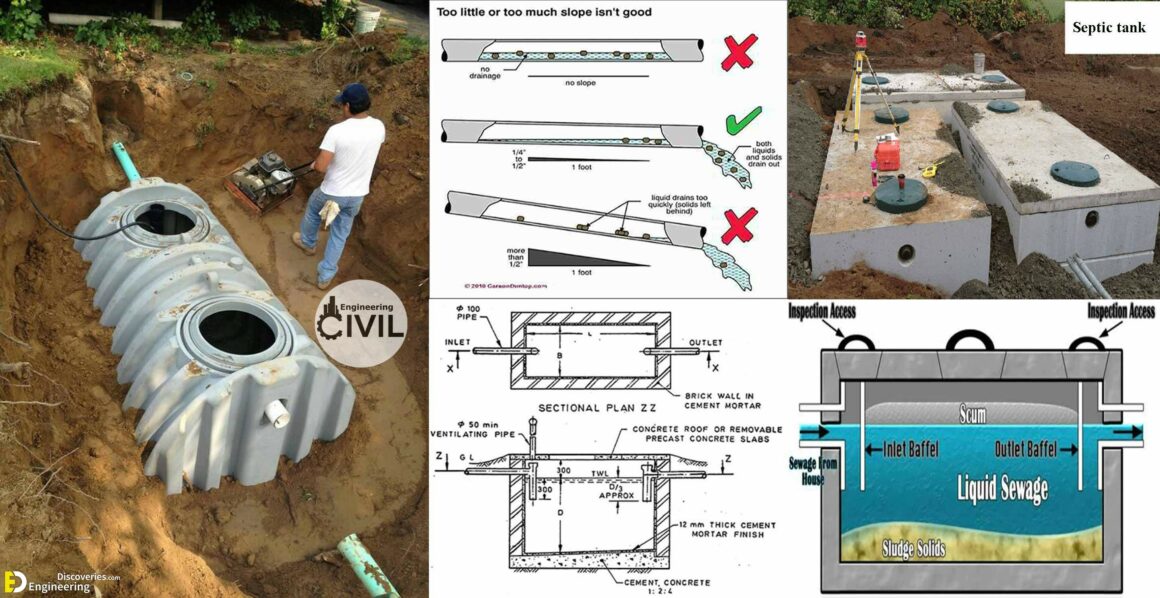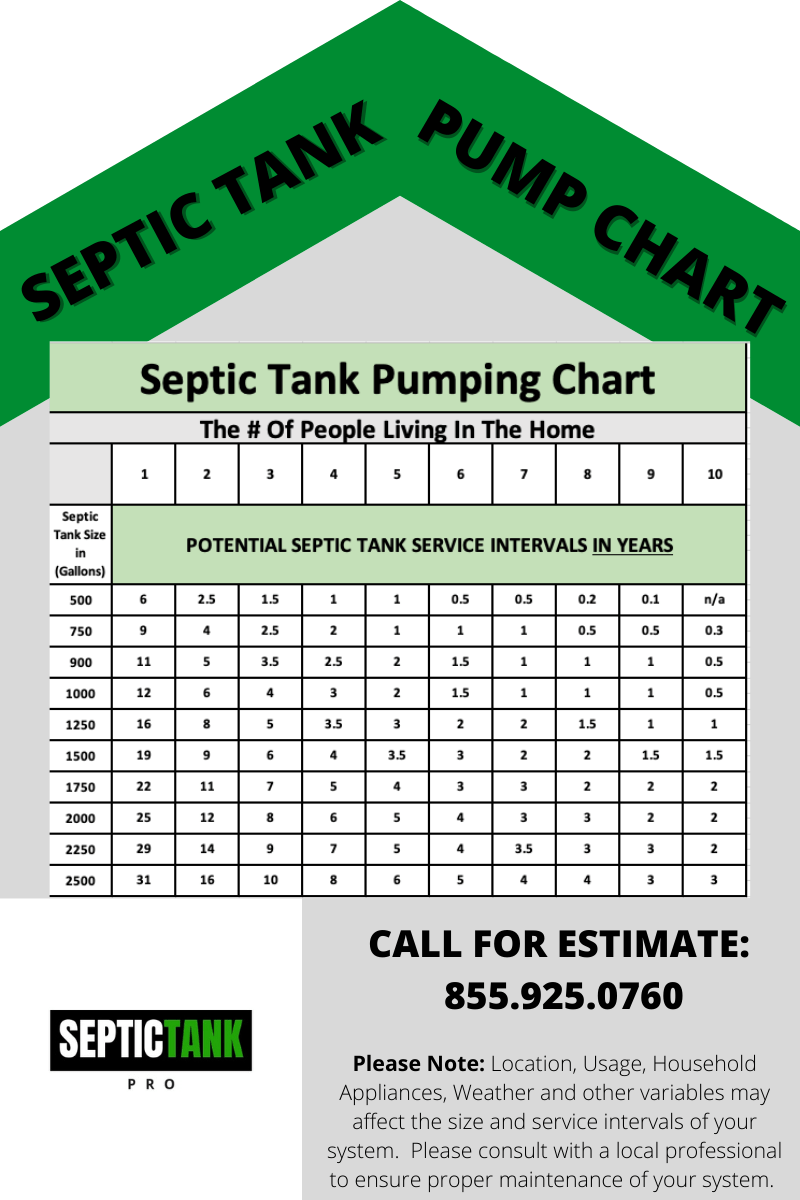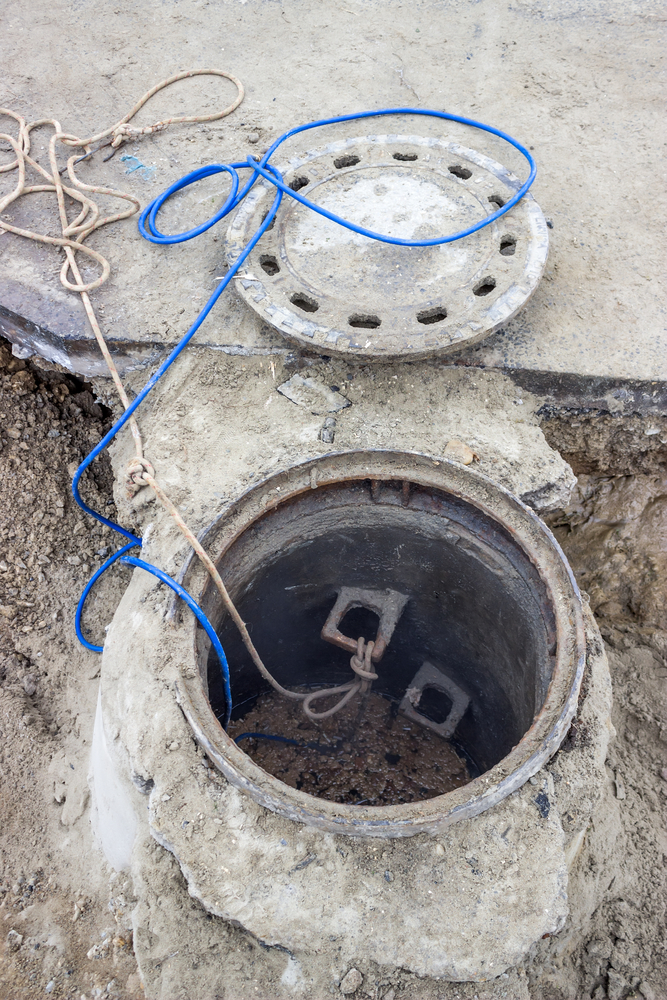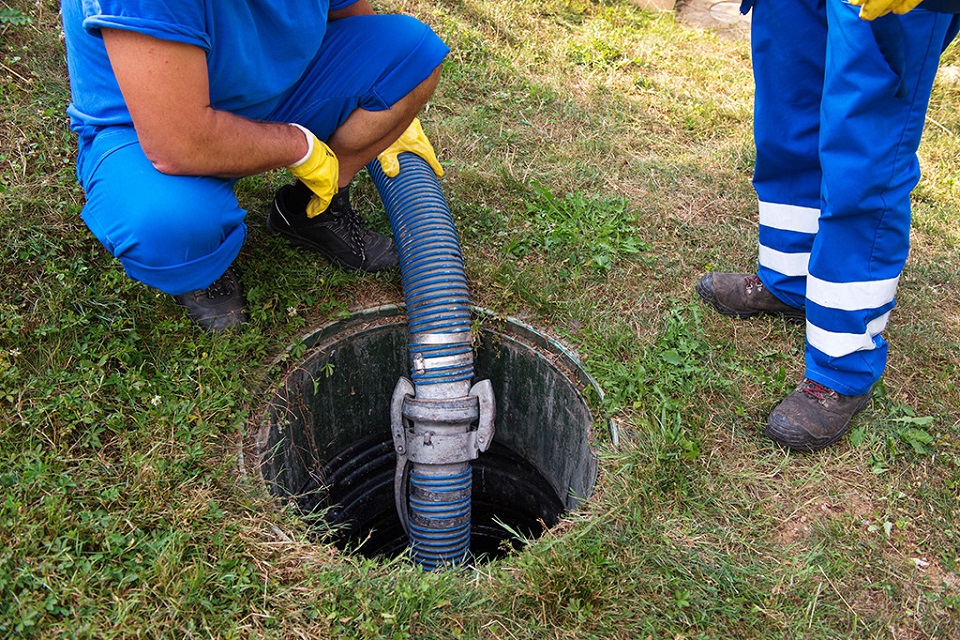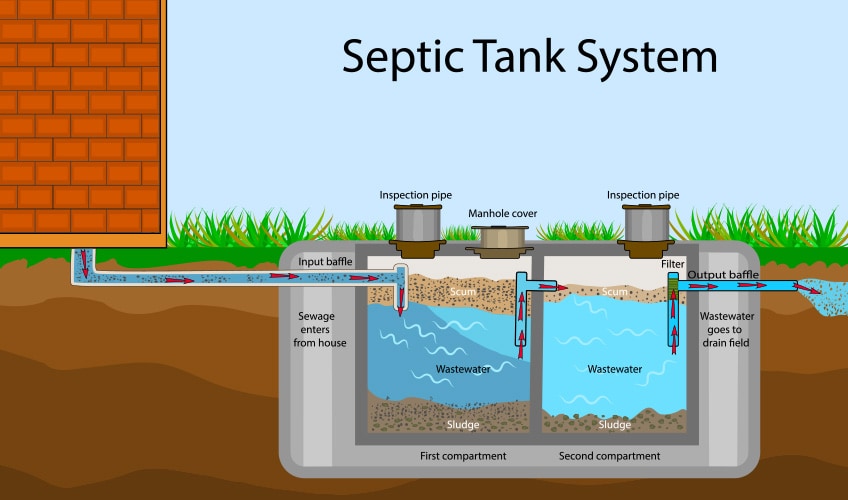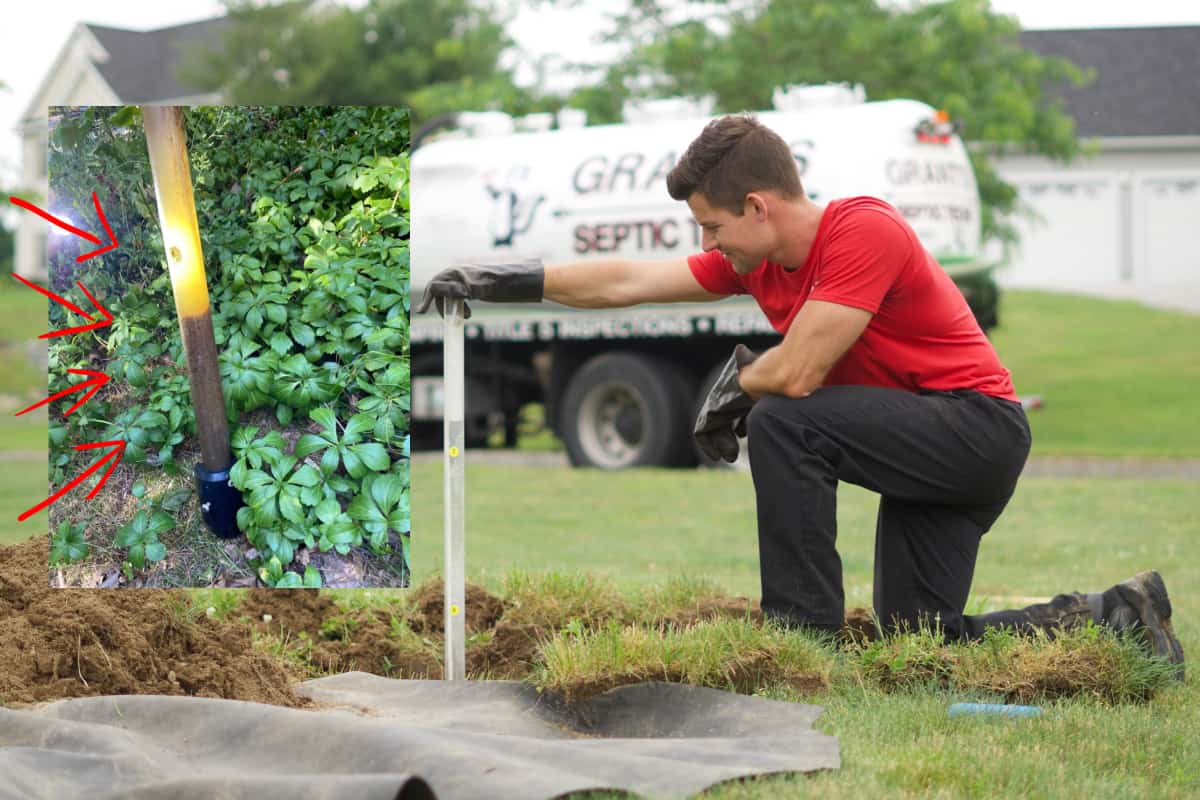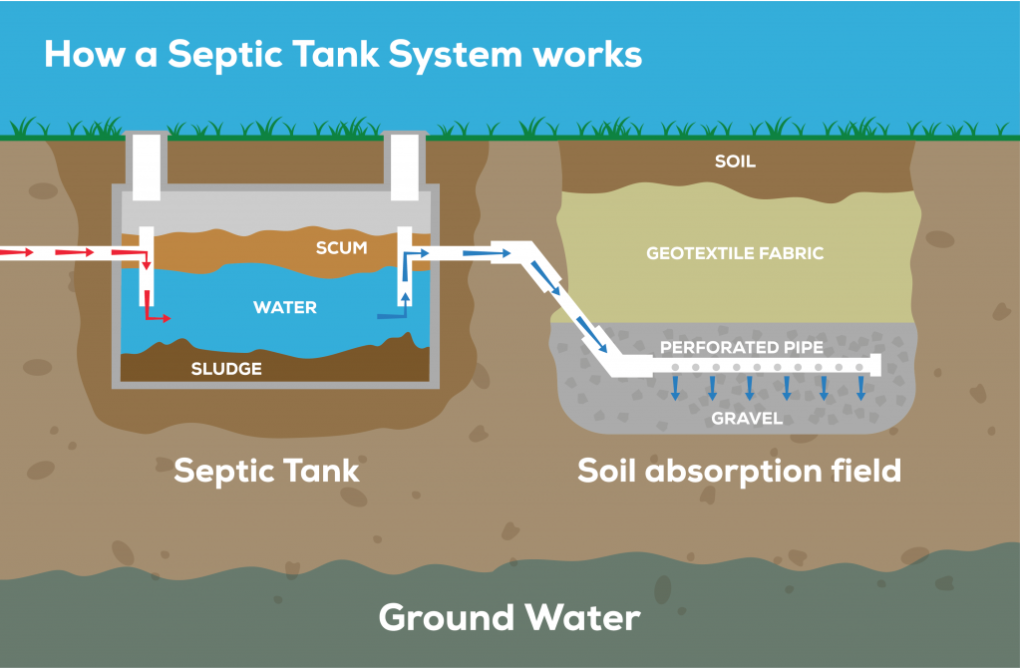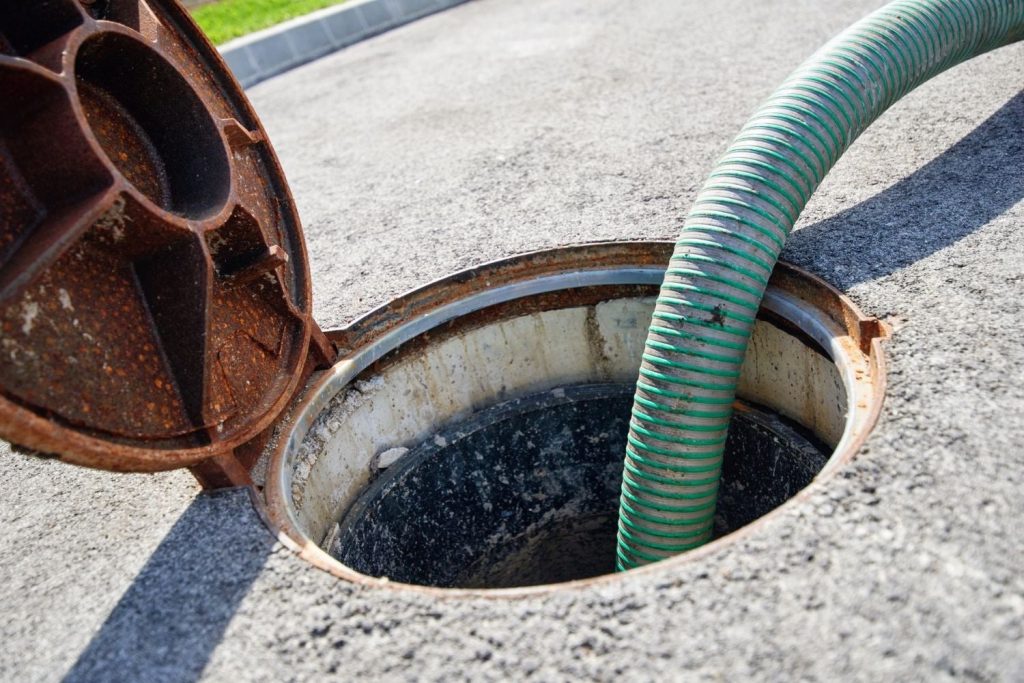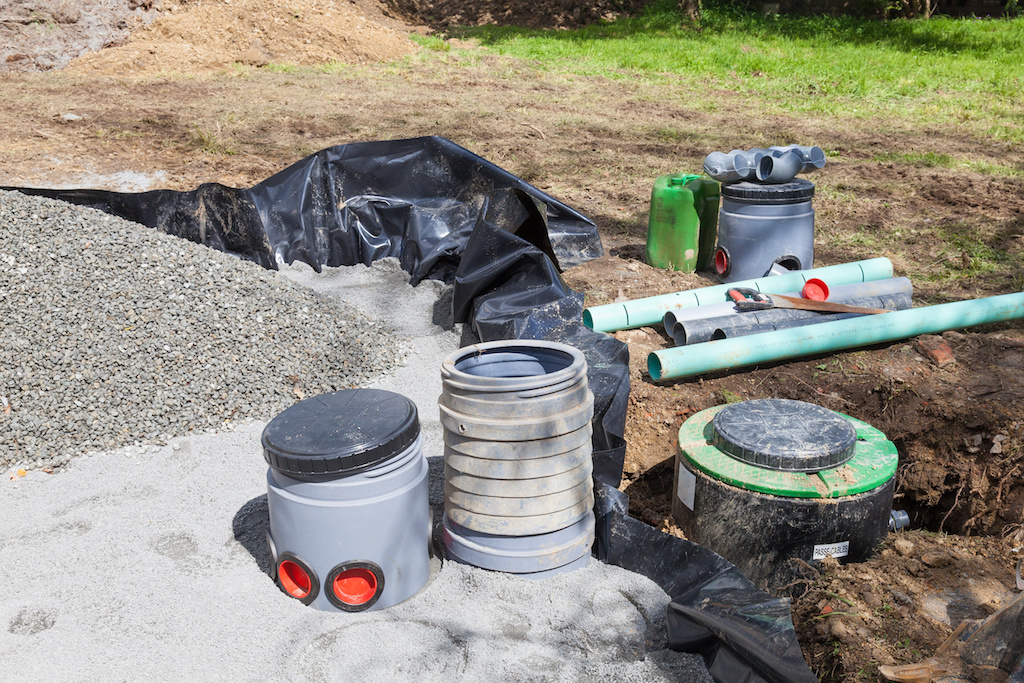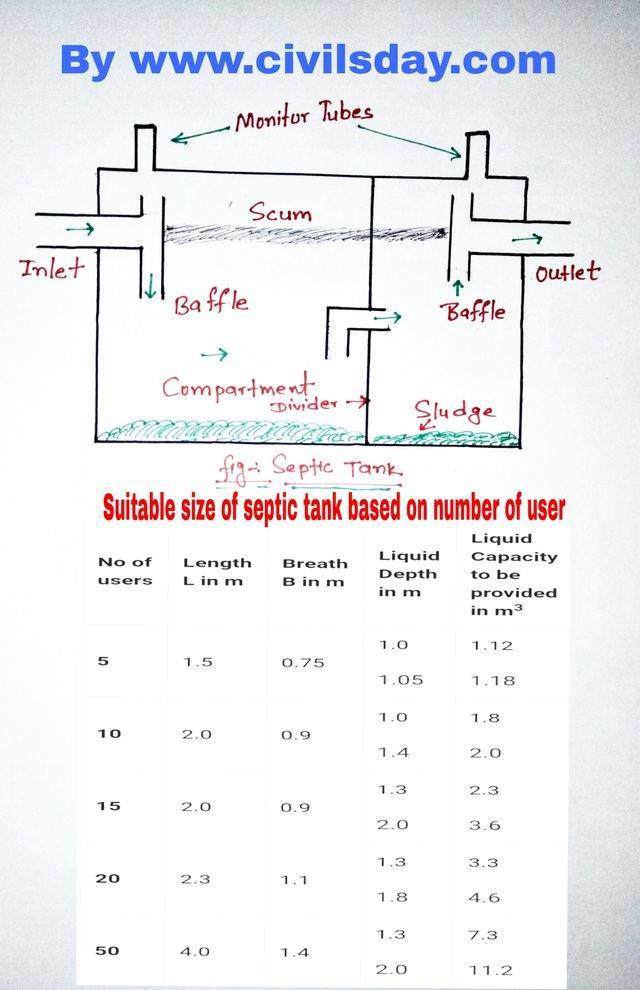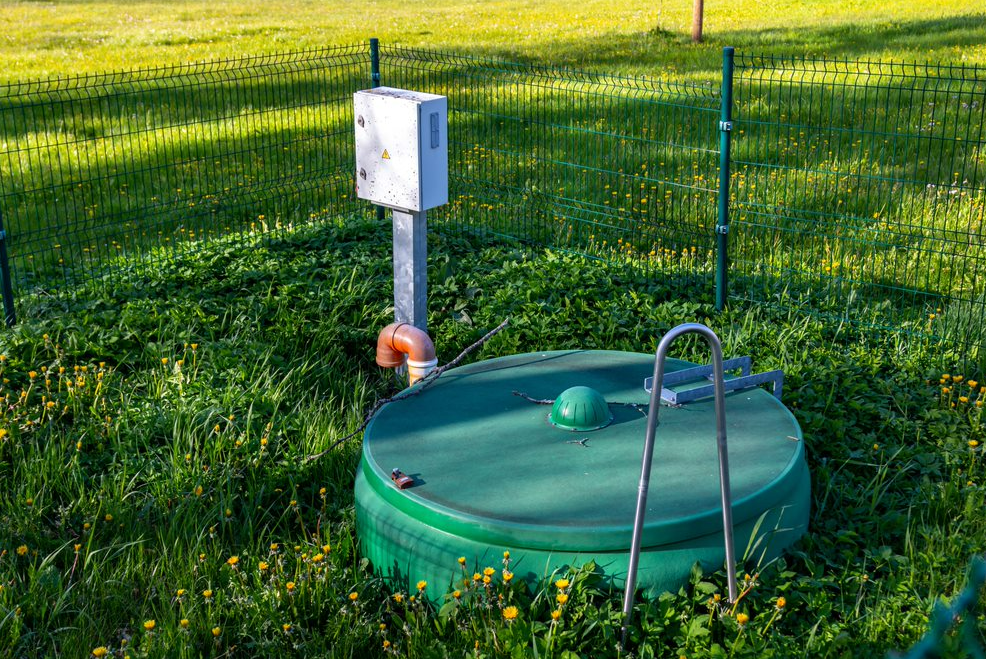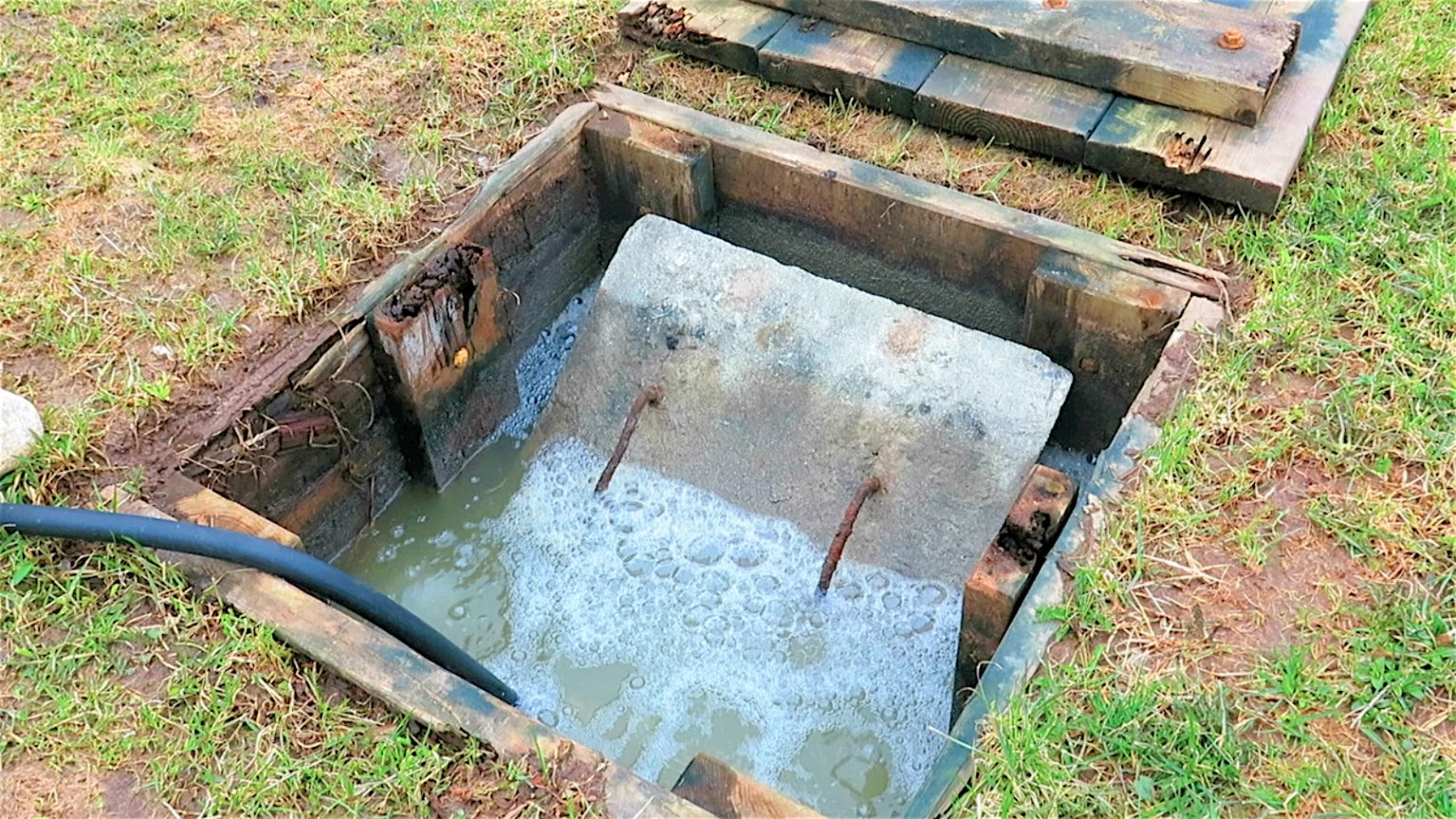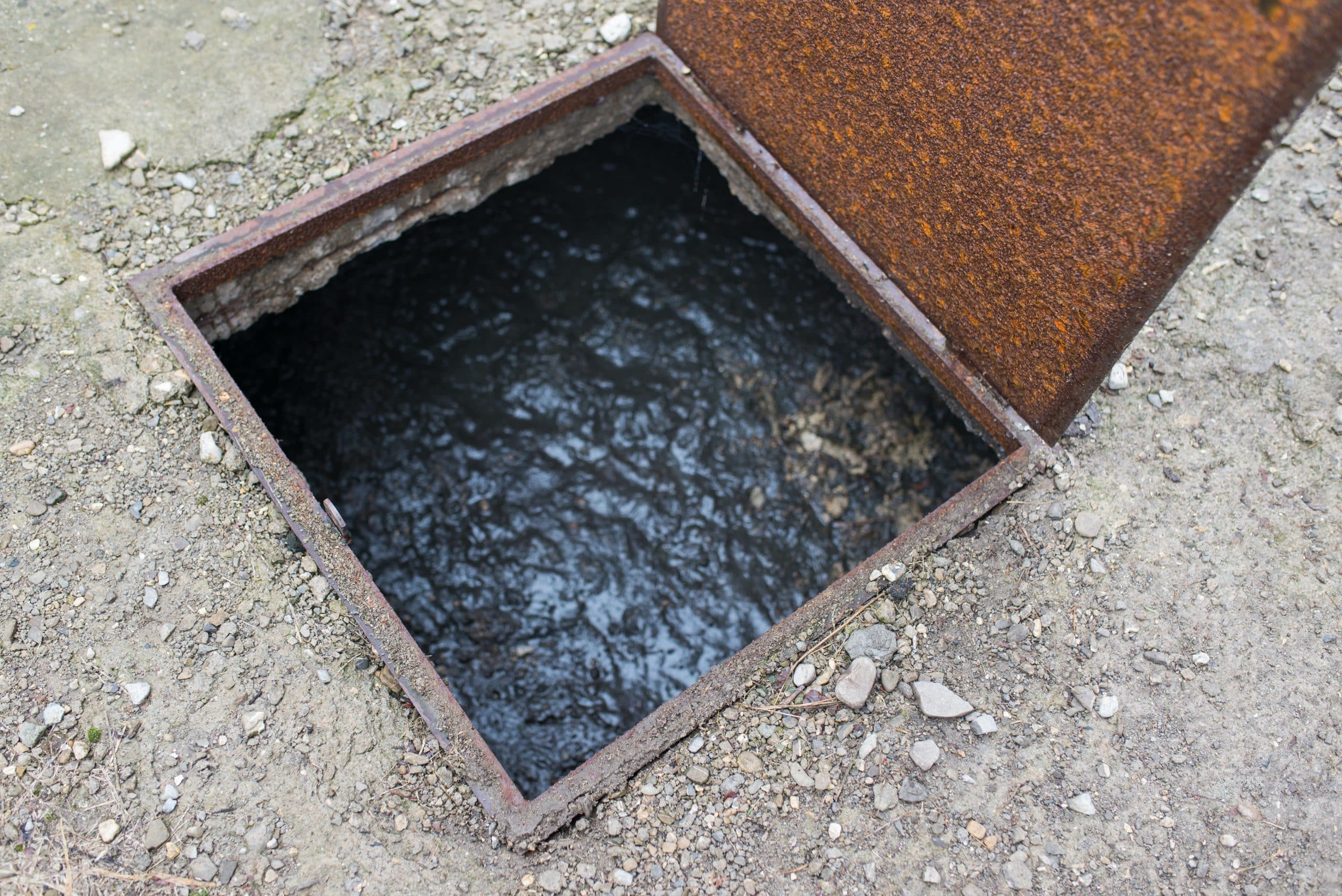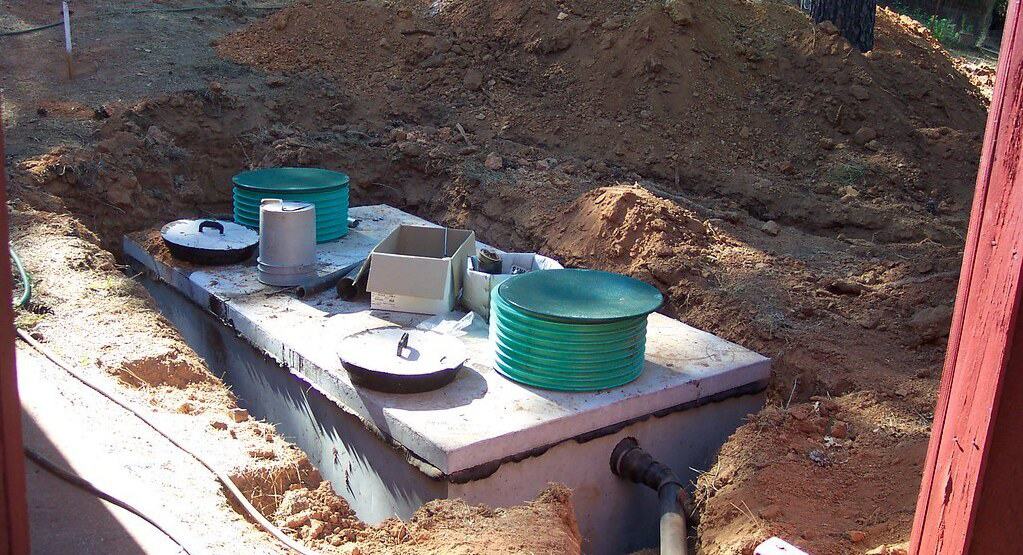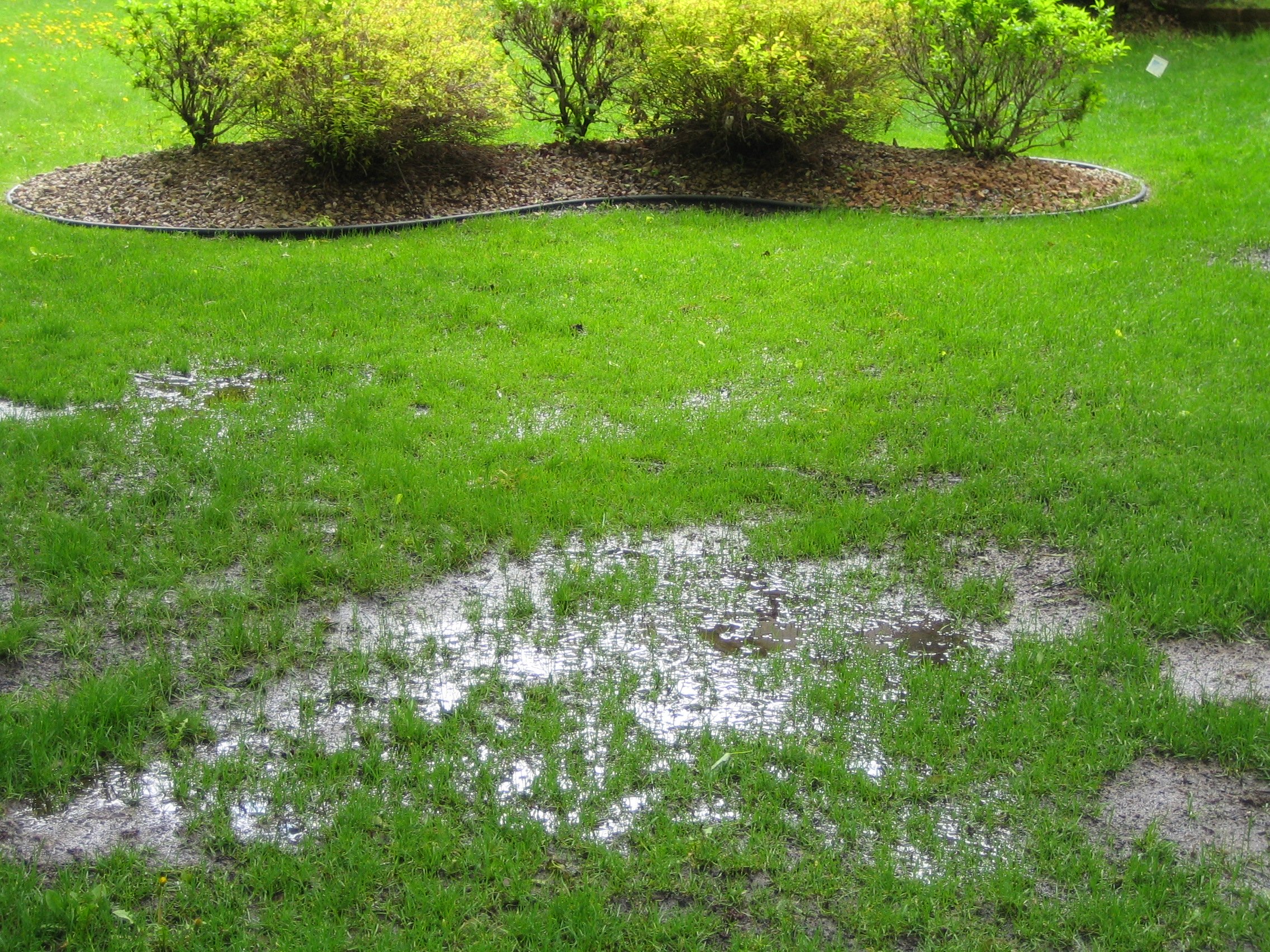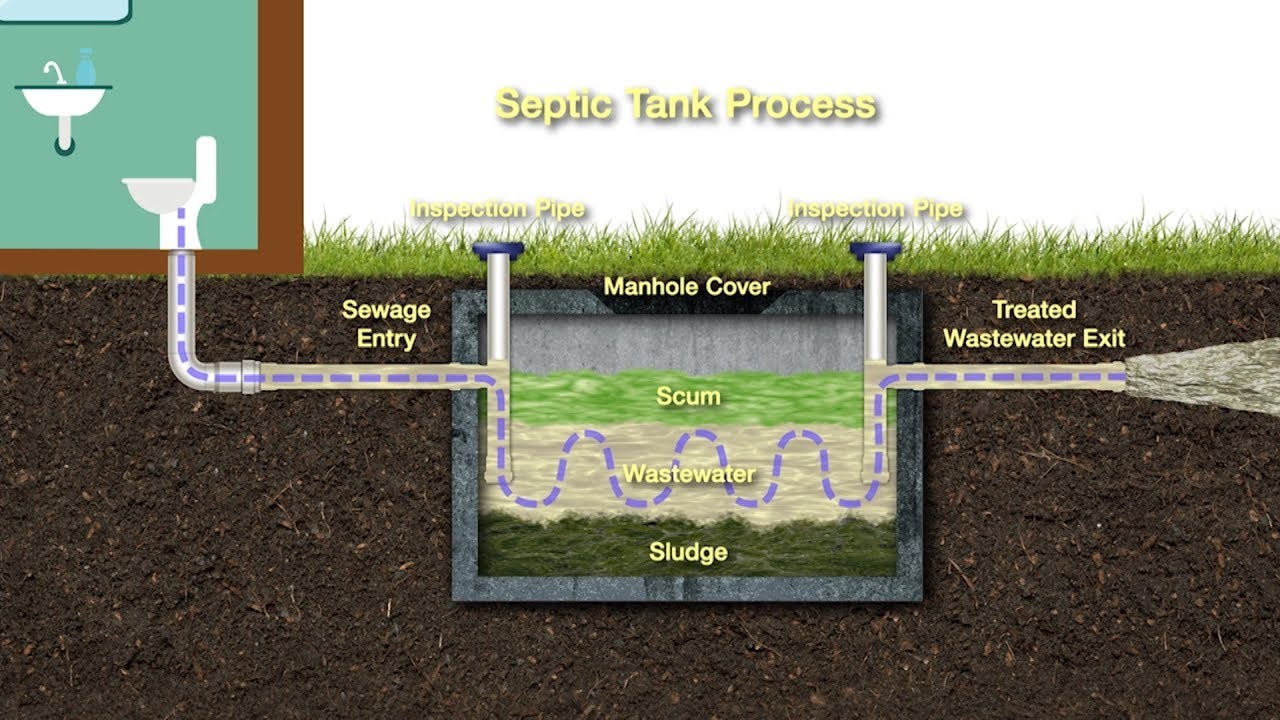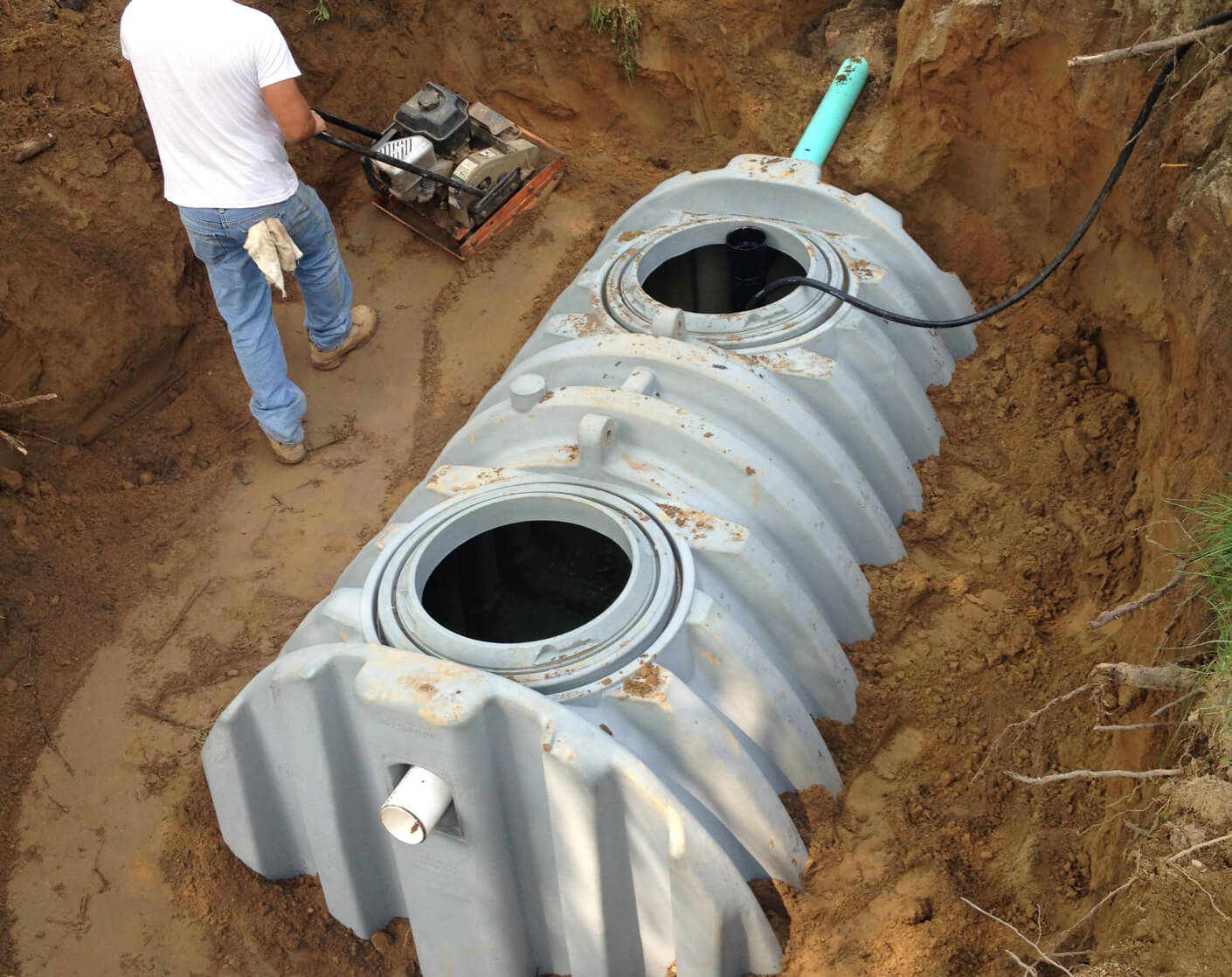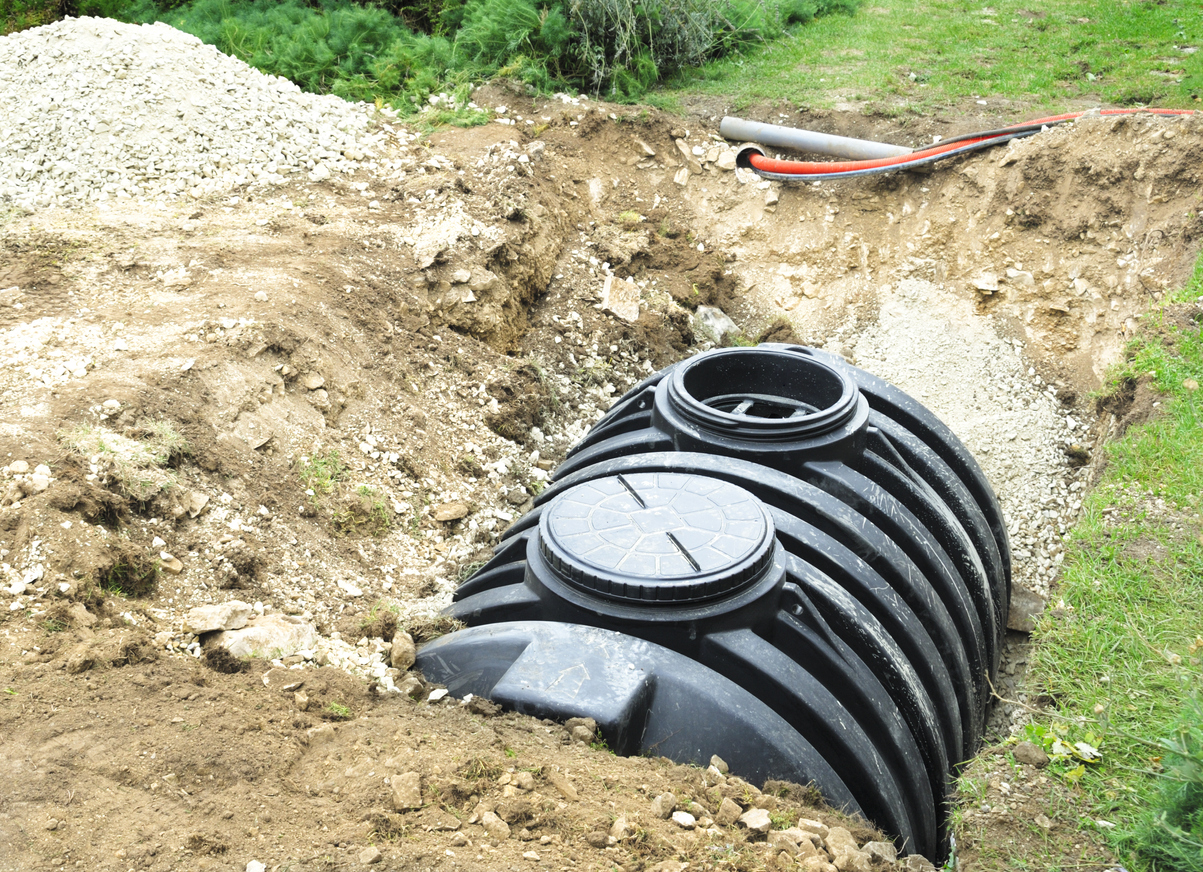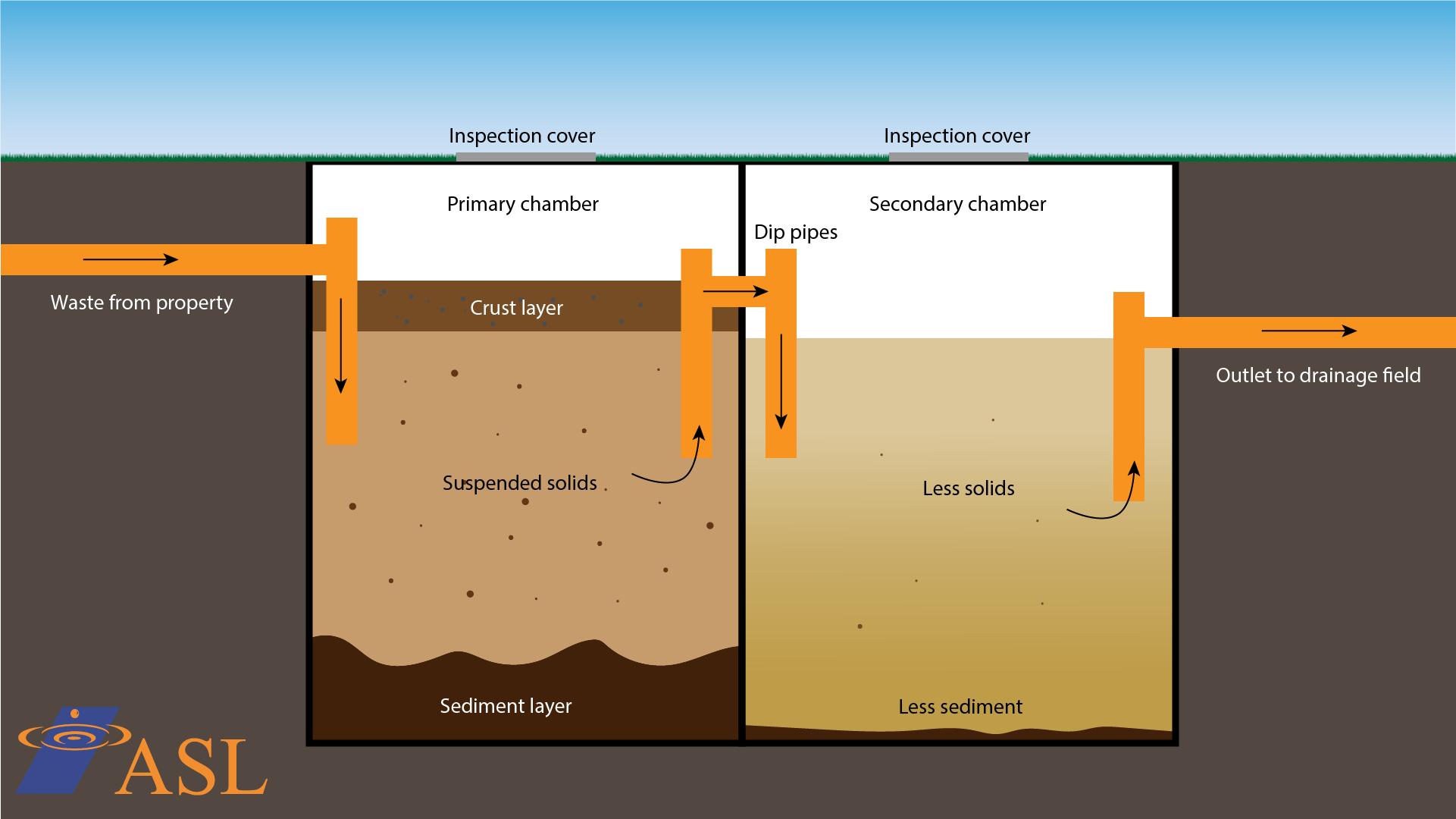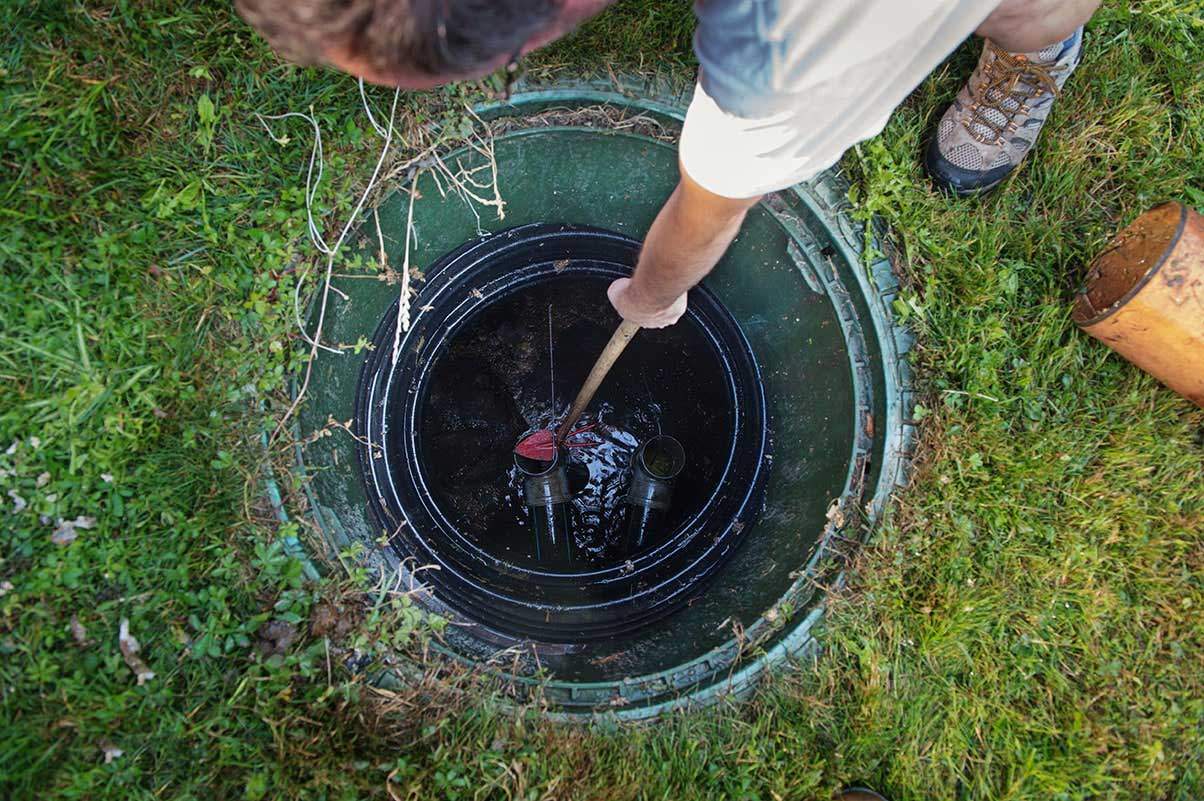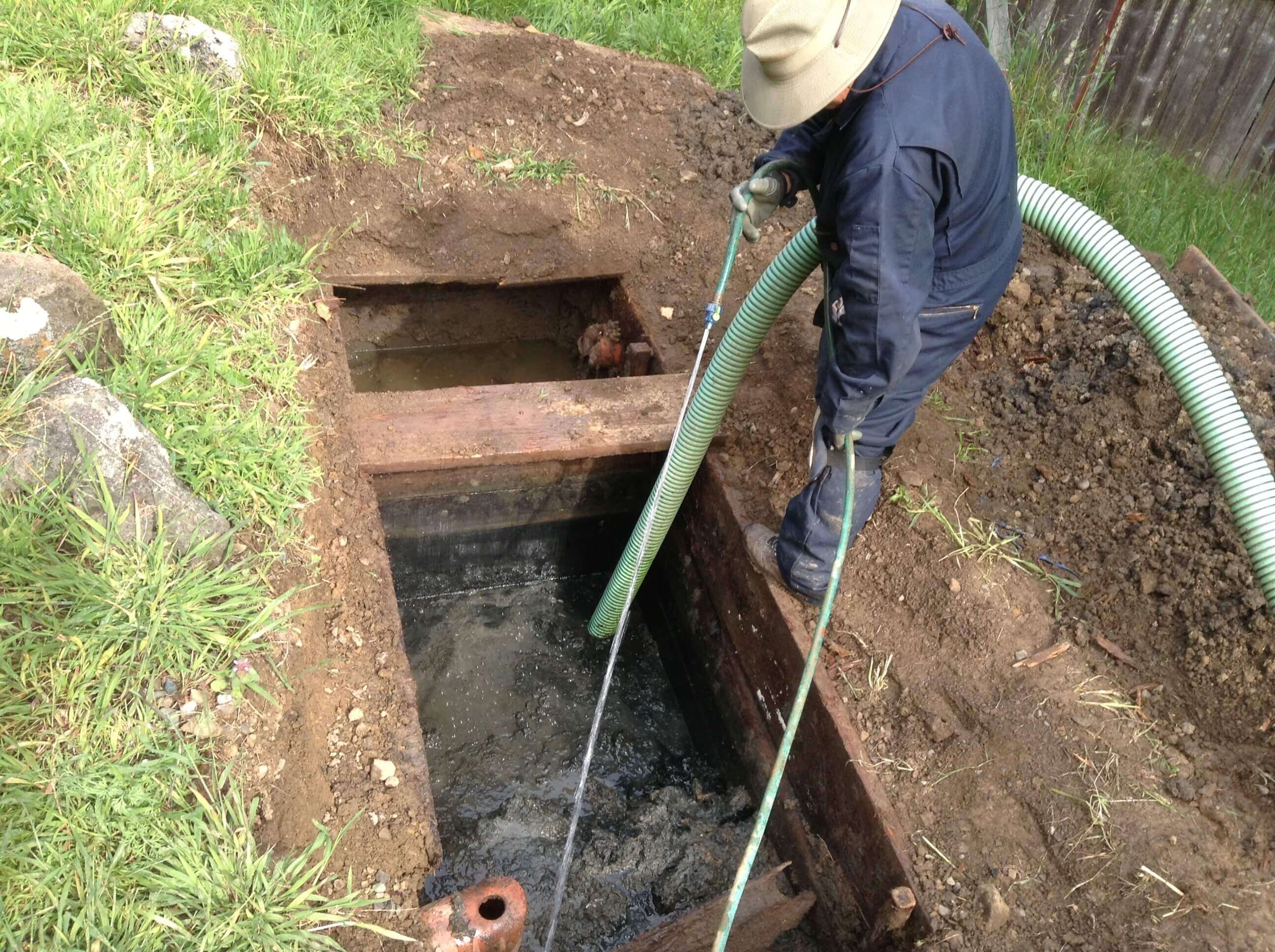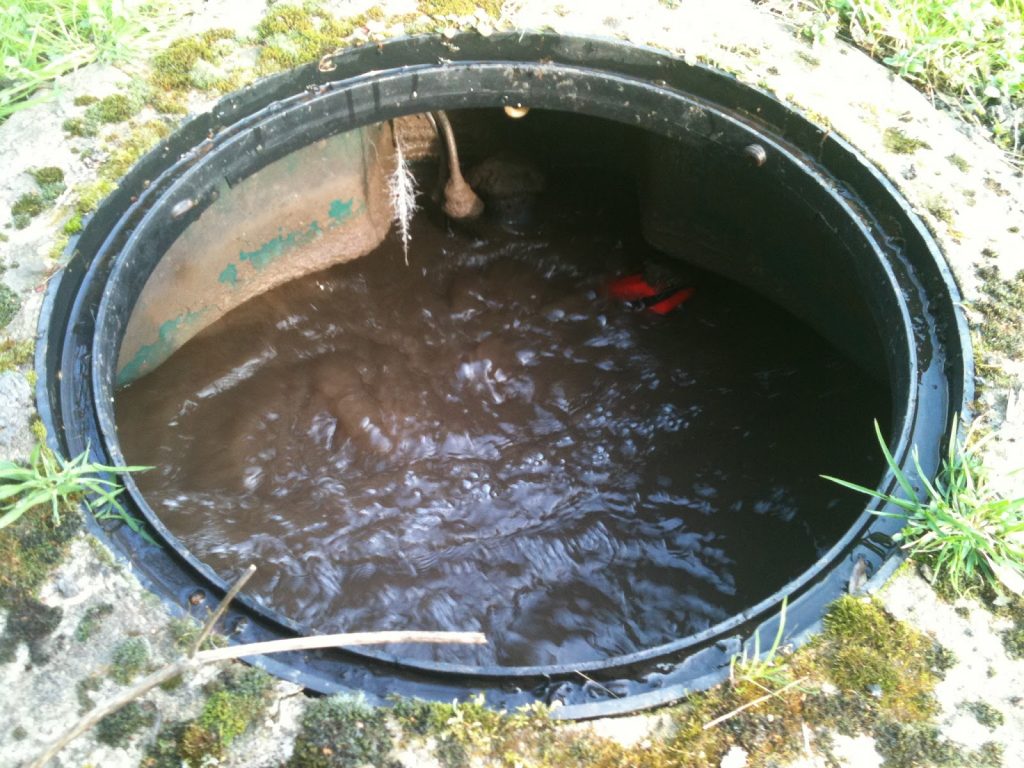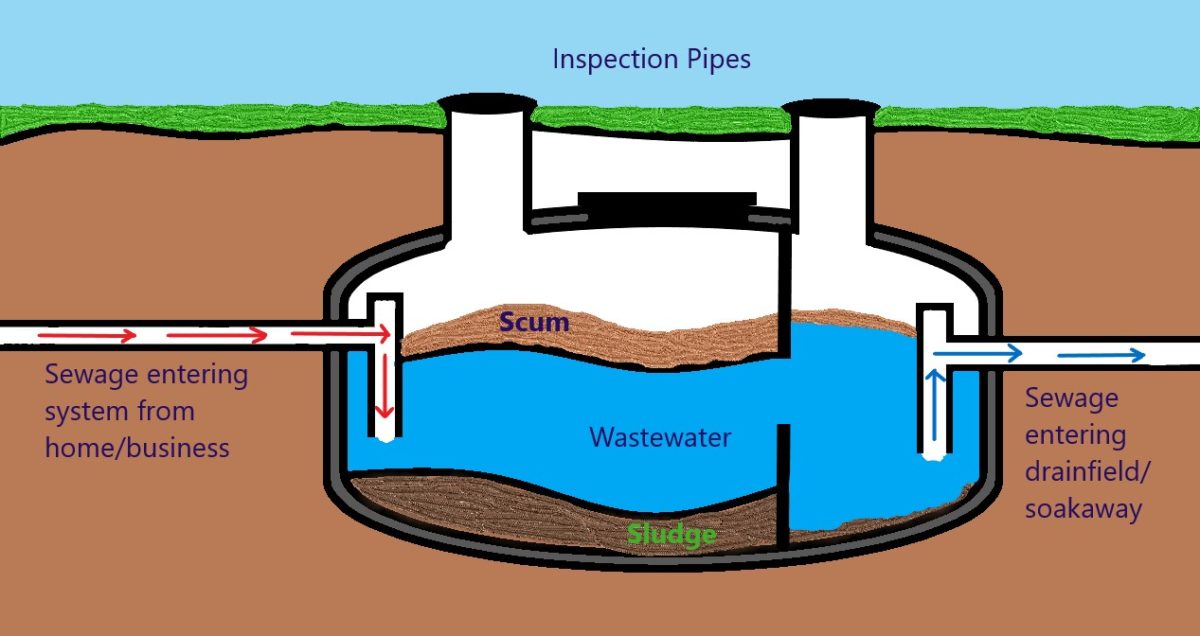A septic tank is a crucial part of a home's wastewater treatment system. It works by separating solid waste from the liquid waste that comes from your kitchen sink, toilets, showers, and other household drains. The solid waste sinks to the bottom of the tank, while the liquid waste, also known as effluent, flows out into the drain field. The effluent is then naturally filtered through the soil, removing harmful bacteria and other contaminants before it reaches the groundwater. This process is essential for maintaining the health of both your home and the environment.How Does a Septic Tank Work?
Proper maintenance is crucial for the longevity and effectiveness of your septic tank. It's recommended to have your tank pumped every 3-5 years, depending on the size of your household and the tank's capacity. This will prevent the buildup of solid waste and ensure that your tank is functioning properly. Regular inspections and maintenance also help to catch any potential problems early on, saving you from costly repairs in the future.Septic Tank Maintenance: What You Need to Know
Septic systems are common in rural areas where homes are not connected to a municipal sewer system. They are also becoming more popular in suburban and urban areas due to their cost-effectiveness and environmental benefits. A septic system consists of three main components: the septic tank, the drain field, and the soil. All three work together to treat and dispose of household wastewater.Understanding Septic Systems
The frequency of septic tank pumping varies depending on several factors, such as the size of your household, the size of your tank, and your water usage habits. As a general rule, it's recommended to have your tank pumped every 3-5 years. However, if you notice any signs of a full tank, such as slow drains, foul odors, or sewage backups, it's best to have it pumped immediately.Septic Tank Pumping: How Often Should You Do It?
It's important to be mindful of what you flush down your drains if you have a septic tank. The tank is designed to handle human waste, toilet paper, and small amounts of organic material. Anything that is not biodegradable or can clog the system, such as grease, chemicals, and non-organic materials, should not be disposed of in the septic tank. These can cause blockages and damage to the system, leading to costly repairs.What Can and Cannot Go in a Septic Tank?
There are several signs to look out for that may indicate your septic tank is full and in need of pumping. These include slow drains, gurgling sounds coming from your pipes, sewage backups, and foul odors around your property. If you notice any of these signs, it's best to have your tank pumped as soon as possible to avoid any further damage or health hazards.How to Tell If Your Septic Tank Is Full
If you're building a new home or need to replace an old septic system, it's essential to understand the installation process. It typically involves excavating and installing the septic tank, connecting it to your household plumbing, and creating a drain field. The installation process may take a few days, and it's crucial to hire a professional septic tank contractor to ensure the job is done correctly.Septic Tank Installation: What to Expect
While it's always best to hire a professional for septic tank maintenance and cleaning, there are some simple steps you can take to maintain a healthy system. These include being mindful of what you flush down your drains, using septic-safe cleaning products, and avoiding excessive water usage. You can also add natural bacteria treatments to your tank to help break down solid waste more efficiently.Septic Tank Cleaning: How to Do It Yourself
Like any other system, septic tanks can experience problems from time to time. Some common issues include clogs, backups, and leaks. These can be caused by a variety of factors, including improper maintenance, excessive water usage, and damage to the tank. It's essential to address these issues promptly to avoid further damage and ensure the health and safety of your household.Septic Tank Problems: Common Issues and Solutions
Each state and local municipality has its own regulations and guidelines for septic tank installation, maintenance, and repair. It's crucial to familiarize yourself with these regulations to ensure you are in compliance and avoid any fines or legal issues. You can contact your local health department for more information on septic tank regulations in your area.Septic Tank Regulations: What You Need to Know
Does Kitchen Sink Water Go to Septic Tank?

The Importance of Understanding Your Septic System
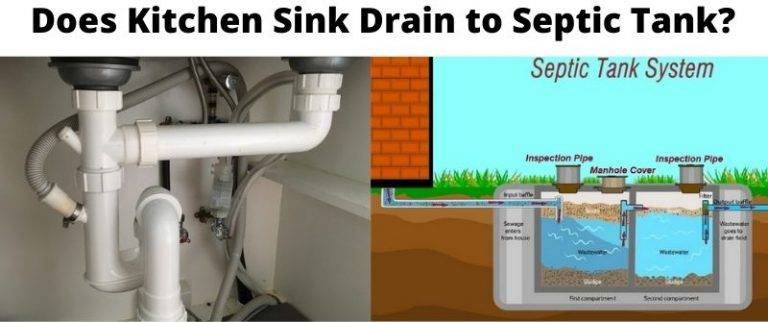 When designing and building a house, one of the most important factors to consider is the septic system. This system is responsible for treating and disposing of all the wastewater from your household. It plays a crucial role in maintaining the health and safety of your family and the environment. Therefore, it is essential to have a good understanding of how your septic system works and what can and cannot go into it. One common question that homeowners have is, "Does kitchen sink water go to septic tank?" Let's find out.
What Goes Into Your Septic Tank?
Before we delve into the answer to the main question, let's first understand what goes into your septic tank. Your septic tank receives all the wastewater from your household, including water from toilets, showers, sinks, and laundry. It's important to note that this wastewater contains not only water but also organic matter, such as food scraps, grease, and soap residue. These solids settle at the bottom of the tank, while the liquid waste flows out into the drain field for further treatment.
Kitchen Sink Water and Your Septic Tank
Now, let's address the question at hand. The simple answer is yes, kitchen sink water does go to the septic tank. Any water that goes down the drain in your kitchen, including water used for washing dishes and food preparation, will eventually end up in your septic tank. However, there are a few things to keep in mind when it comes to kitchen sink water and your septic system.
Be Mindful of What Goes Down the Drain
While kitchen sink water is directed to your septic tank, it's important to be mindful of what goes down the drain. Avoid pouring grease, oil, or food scraps down the sink as they can clog your pipes and cause problems with your septic system. These substances can also disrupt the natural breakdown of waste in your tank and lead to costly repairs.
Use a Garbage Disposal with Caution
Some homeowners may have a garbage disposal installed in their kitchen sink to help with food waste. While convenient, it's important to use it with caution when you have a septic system. The solid food particles can also clog your pipes and disrupt the balance of your septic tank. It's best to limit the use of a garbage disposal and dispose of food waste in the trash instead.
The Bottom Line
In conclusion, kitchen sink water does go to the septic tank, but it's important to be mindful of what goes down the drain. Proper maintenance and care of your septic system, along with being mindful of what you put into it, will ensure its proper functioning and longevity. If you're unsure about the state of your septic system or have any concerns, it's best to consult a professional for advice.
When designing and building a house, one of the most important factors to consider is the septic system. This system is responsible for treating and disposing of all the wastewater from your household. It plays a crucial role in maintaining the health and safety of your family and the environment. Therefore, it is essential to have a good understanding of how your septic system works and what can and cannot go into it. One common question that homeowners have is, "Does kitchen sink water go to septic tank?" Let's find out.
What Goes Into Your Septic Tank?
Before we delve into the answer to the main question, let's first understand what goes into your septic tank. Your septic tank receives all the wastewater from your household, including water from toilets, showers, sinks, and laundry. It's important to note that this wastewater contains not only water but also organic matter, such as food scraps, grease, and soap residue. These solids settle at the bottom of the tank, while the liquid waste flows out into the drain field for further treatment.
Kitchen Sink Water and Your Septic Tank
Now, let's address the question at hand. The simple answer is yes, kitchen sink water does go to the septic tank. Any water that goes down the drain in your kitchen, including water used for washing dishes and food preparation, will eventually end up in your septic tank. However, there are a few things to keep in mind when it comes to kitchen sink water and your septic system.
Be Mindful of What Goes Down the Drain
While kitchen sink water is directed to your septic tank, it's important to be mindful of what goes down the drain. Avoid pouring grease, oil, or food scraps down the sink as they can clog your pipes and cause problems with your septic system. These substances can also disrupt the natural breakdown of waste in your tank and lead to costly repairs.
Use a Garbage Disposal with Caution
Some homeowners may have a garbage disposal installed in their kitchen sink to help with food waste. While convenient, it's important to use it with caution when you have a septic system. The solid food particles can also clog your pipes and disrupt the balance of your septic tank. It's best to limit the use of a garbage disposal and dispose of food waste in the trash instead.
The Bottom Line
In conclusion, kitchen sink water does go to the septic tank, but it's important to be mindful of what goes down the drain. Proper maintenance and care of your septic system, along with being mindful of what you put into it, will ensure its proper functioning and longevity. If you're unsure about the state of your septic system or have any concerns, it's best to consult a professional for advice.

